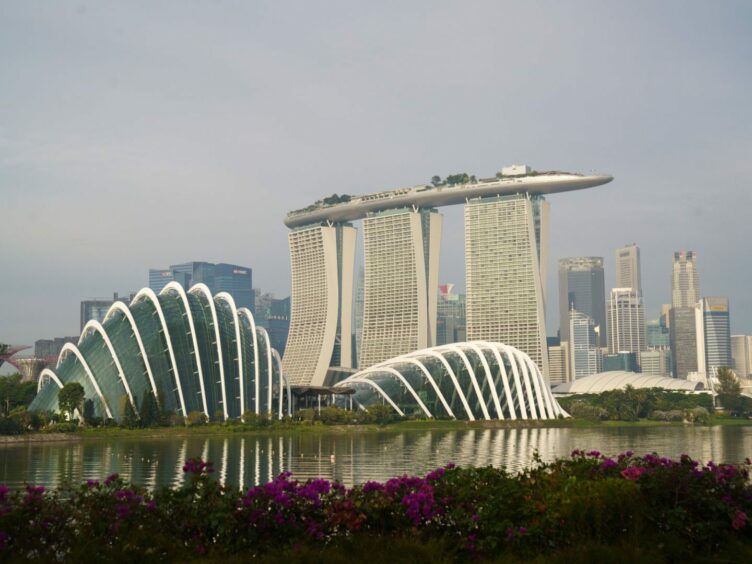
Singapore will target net-zero emissions by 2050 and is bolstering its short-term climate goals even as the city-state acknowledges it faces challenges to shift to cleaner energy sources.
The Southeast Asian nation aims to peak emissions before 2030 and to limit pollution to 60 million tons of carbon-dioxide (CO2) equivalent by that date from a previous target of 65 million tons, Deputy Prime Minister Lawrence Wong said Tuesday. Emissions in 2020 were 52.8 million tons, according to government data.
Wong’s confirmation of a 2050 target comes after Singapore announced an ambition to achieve net zero “by or around mid-century,” in a budget earlier this year. The National Climate Change Secretariat said last month that the country was considering an aim of reaching the goal by that date.
“Given that Singapore is an alternative energy disadvantaged island city-state, these targets are contingent on technological advances,” including in clean hydrogen and carbon capture, the nation’s government said in a statement. Achieving the goals will also need “effective international collaborations in areas such as carbon credits and renewable energy imports,” it said.
The city-state is particularly vulnerable to rising sea levels and extreme weather events triggered by climate change. At least 30% of the island is less than 5 meters (16 feet) above sea level. Climate Action Tracker, which analyses climate plans, has ranked Singapore’s policies and actions as “highly insufficient” and its domestic target as “critically insufficient.”
To help achieve its green goals, Singapore previously announced plans to dramatically increase the tax it levies on greenhouse gas pollution from its biggest emitters from 2024. Private businesses will be encouraged to look at investing in low-carbon hydrogen projects as well as solar and energy storage systems.
The tax hike might create more incentive for large factories to increase efficiency and find ways to reduce emissions, but it’s unlikely to have any near-term impact on the energy mix for power generation, which relies almost exclusively on imported natural gas. The country is planning large projects to import clean electricity, but they’re still several years away.
Recommended for you
